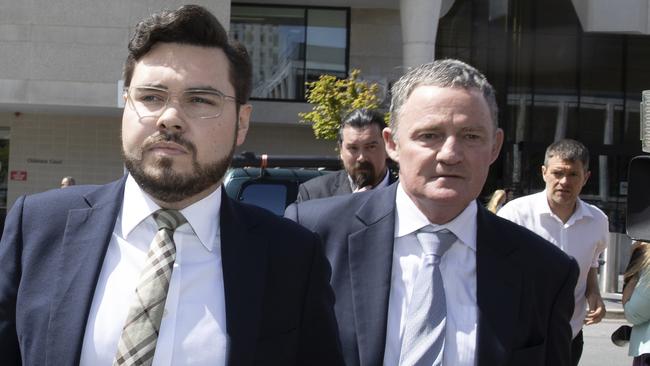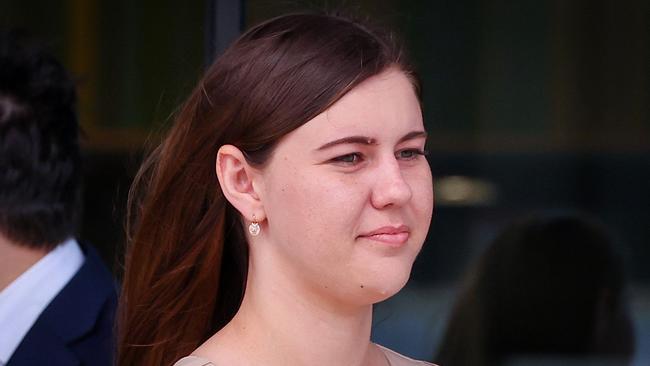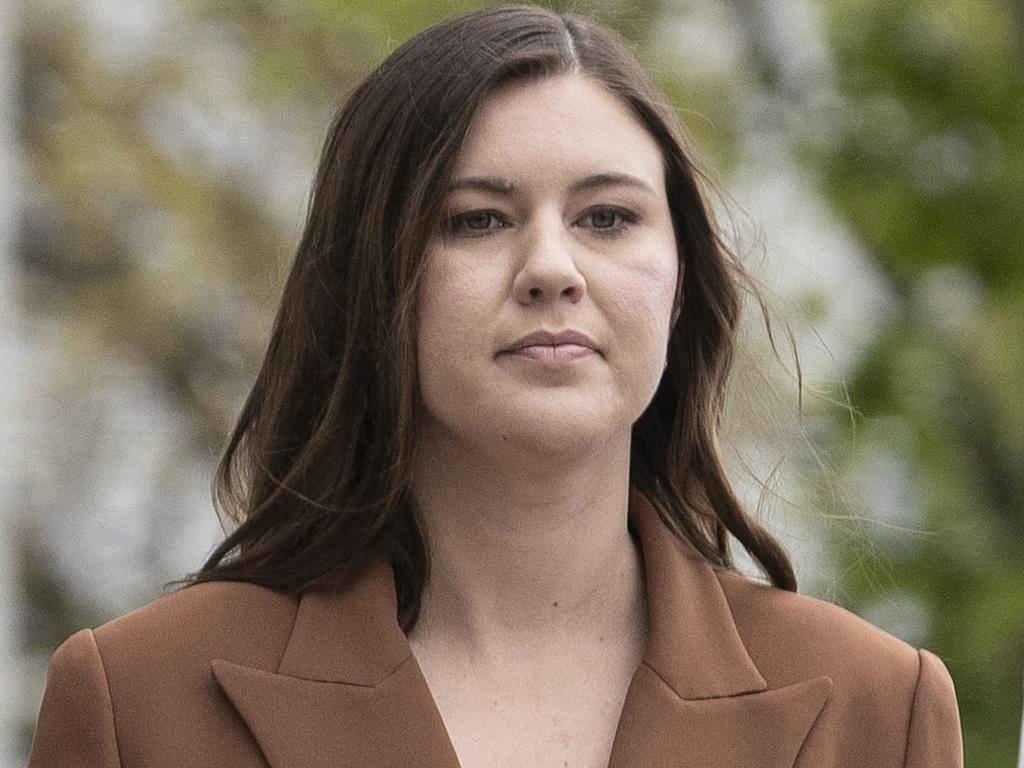
In that order. Too late because the DPP should have decided not to prosecute Lehrmann in the first place. Too little because Drumgold should have made that earlier decision for two reasons: the inconsistency and lack of evidence, and the mental health of Higgins.
After all, as revealed on Saturday by The Weekend Australian, the most senior Australian Federal Police officers involved in the investigation gave precisely those reasons in a report and in a conversation with the DPP explaining their view there should never have been a prosecution at all.
An AFP executive briefing authored by Detective Superintendent Scott Moller and Detective Inspector Marcus Boorman, and dated June 9, 2021, raised a series of inconsistencies and difficulties with Higgins’s evidence and concluded that their investigation “identified a number of potential evidentiary and psychological issues that may affect any future prosecution”.
The Weekend Australian also has obtained copies of diary entries by Moller that reported a conversation between the most senior police officer involved in the Higgins investigation, DCPO Michael Chew, and the DPP. After learning the DPP planned to prosecute Lehrmann, in his diary entry Moller recorded Chew as saying “if it was my choice I wouldn’t proceed. But it [is] not my choice. There is too much political interference”. Moller’s response is recorded in the same diary note: “That’s disappointing given I think there is insufficient evidence.”

The DPP chose to ignore the views and advice of the AFP after its investigation into the allegations by Higgins. As reported by The Weekend Australian on Saturday, police concerns about a prosecution were laid out in detail in Moller’s briefing. This AFP document became a legal tug of war, its contents hidden from the public and deemed irrelevant for the jury. It was not disclosed to the defence; instead it had to be subpoenaed.
These revelations raise serious questions about the administration of justice. Given the AFP advice and the real potential for the zealotry of the #MeToo media to influence members of a jury, why did the DPP choose to prosecute Lehrmann? Was Drumgold influenced by the same forces?
The aborted trial confirmed the serious inconsistencies in Higgins’s evidence. These included claims about what she did with the dress she wore the night of the alleged rape; about whether she or her boyfriend, David Sharaz, forwarded a dossier about the allegation to journalists before she went to police; inconsistent evidence about bruises to her leg and about the fact she had deleted material from her phone, including texts she sent to a Parliament House security guard the morning after the alleged rape. In the end, there was no forensic evidence of a rape. There was no objective evidence that sex happened, consensual or otherwise.
The AFP material and the way the case proceeded raise serious questions about the DPP’s judgment. Not merely that Drumgold began this case against strong police advice in the first place but about the fact that even now, in his Friday statement, his aim seemed to be to protect Higgins from further public scrutiny, which invariably includes criticism. Drumgold’s focus on the bravery of Higgins, when there has been no finding of guilt, is especially troubling. Higgins’s allegation remains just that – an allegation.
Remember, Higgins could have proceeded with this trial minus the media attention. She has been subjected to public scrutiny because she chose to go to the media before she gave police a formal record of interview. She chose to give evidence in court rather than in a remote witness room. Higgins courted publicity before the trial started, during the trial, and on the day the trial was aborted and since then.
Indeed, the DPP should now be much more concerned about the way in which this untested allegation was initially and subsequently publicised, the media circus around it and its impact on whether Lehrmann could receive a fair trial. If Drumgold is not now looking seriously at contempt charges for those involved, we should ask more probing questions of the DPP’s judgment. If the DPP and courts do not draw a line in the sand to protect against the real possibility for the contamination of the justice system, and of juries, #MeToo media trials will continue to threaten a fair trial.
One would have thought that an impartial prosecutor, mindful of the presumption of innocence, would at least have sought the same solicitude for Lehrmann, who also has suffered enormously throughout this ordeal. Where was Drumgold’s plea for attacks on Lehrmann to be brought to an end?
If a DPP, as an officer of the court, does not defend the presumption of innocence, especially when they choose not to re-prosecute a defendant, how can we expect others, who are not legally trained, to understand that our criminal justice system is the last bulwark against injustices in our society?
The AFP material raises one further serious matter. The AFP diary note mentions “political interference” in this case. While we do not know what that interference was, or from where it came, any political interference in prosecution decisions is fundamentally repugnant to the rule of law. The DPP should either confirm there was none or tell us about it in detail.
The DPP’s decision on Friday not to re-try Lehrmann is the right decision. But questions remain. And it is a shame that Drumgold didn’t make the right decision earlier before so much damage was done to the lives of two young people at the centre of this tawdry episode.







The decision by ACT Director of Public Prosecutions Shane Drumgold to withdraw the sexual assault charge against Bruce Lehrmann due to the mental health of Brittany Higgins is too late and too little.